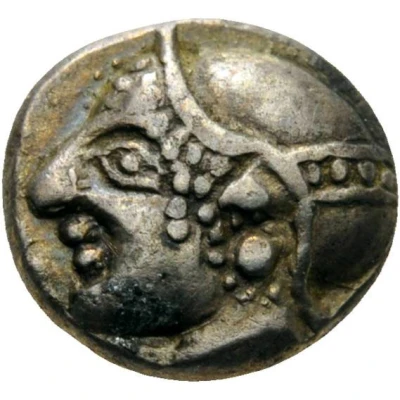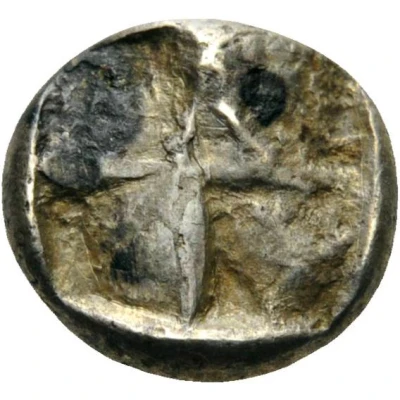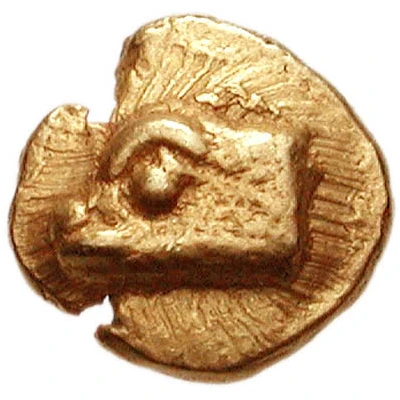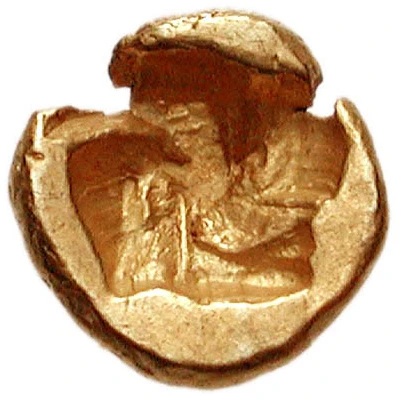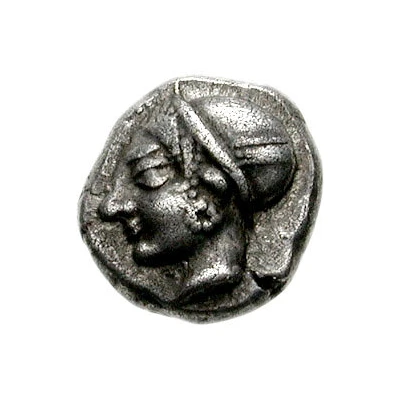
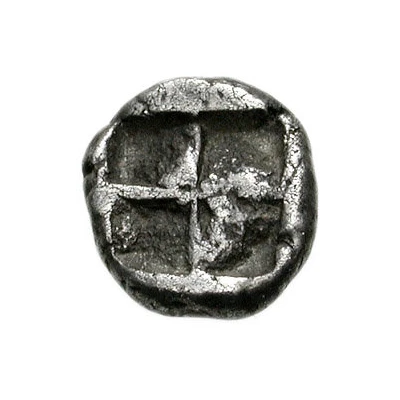

© Classical Numismatic Group, Inc.
Diobol 510 BC - 494 BC
| Silver | 1.32 g | 10.0 mm |
| Issuer | Phokaia (Ionia) |
|---|---|
| Type | Standard circulation coin |
| Years | 510 BC - 494 BC |
| Value | 2 Obols (⅓) |
| Currency | Drachm |
| Composition | Silver |
| Weight | 1.32 g |
| Diameter | 10.0 mm |
| Shape | Round (irregular) |
| Technique | Hammered, Incuse |
| Demonetized | Yes |
| Updated | 2024-10-10 |
| Numista | N#148071 |
|---|---|
| Rarity index | 95% |
Reverse
Quadripartite incuse square
Interesting fact
The Diobol coin was used as a form of currency in ancient Greece and its design featured the image of a dolphin, which was a symbol of the city of Phokaia. The dolphin was depicted jumping out of the water, representing the city's connection to the sea and its importance as a trading hub. The coin's design also included an inscription of the city's name, "Phokaia," in ancient Greek letters. This coin is a rare and valuable artifact that provides insight into the history and culture of ancient Greece.
